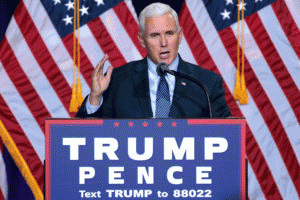Based on the sturm und drang of the last few days, the answer is very possibly yes. If so, the gambit failed when Trump, in his usual high-voltage manner, denounced the dossier as "fake news" and sailed into the intelligence agencies for behaving like something out of "Nazi Germany." The intelligence community's hopes, if that's what they were, were dashed.
All of which is thoroughly unprecedented by American political standards. After all, this is a country that takes endless pride in the peaceful transfer of power every four years or so. Yet here was the intelligence community attempting to short-circuit the process by engineering Trump's removal before he even took office.
But the Guardian then upped the ante even more by suggesting that the CIA continue with the struggle. Plainly, the Republican congressional leadership has "no appetite" for an inquiry into Steele's findings, the paper's New York correspondent, Ed Pilkington, wrote, adding:
"That leaves the intelligence agencies. The danger for Trump here is that he has so alienated senior officials, not least by likening them to Nazis, that he has hardly earned their loyalty."
What was the Guardian suggesting -- that disloyal intelligence agents keep on searching regardless? And what if they come up with what they claim is a smoking gun?
Explained Pilkington: "To take a flight of fancy, what if it [i.e., Steele's findings] were substantiated? That would again come down to a question of politics. No US president has ever been forced out of office by impeachment (Richard Nixon resigned before the vote; Andrew Johnson and Bill Clinton were acquitted by the Senate). Any such procedure would have to be prepared and approved by a majority of the House of Representatives, and then passed to the Senate for a two-thirds majority vote. As the Republicans hold the reins in both chambers, it would take an almighty severing of ties between Trump and his own party to even get close to such a place."
It's a long shot, but the Guardian's recommendation is that rogue agents keep on digging until they strike pay dirt, at which point they should go straight to Congress and persuade -- if not pressure -- the Republican leadership to initiate the process of throwing Trump out of office.
This is not the same as sending an armored column to attack Capitol Hill, but it's close. Essentially, the Guardian was calling on the intelligence agencies to assume ultimate responsibility regarding who can sit in the Oval Office and who cannot.
A Desperate Establishment
All of which demonstrates how desperate the military-intelligence complex has grown after Clapper's report on alleged Russian hacking of Democratic emails met with such a derisory reception following its publication on Jan. 6. Even the Times admitted that it provided "no new evidence to support assertions that Moscow meddled covertly through hacking and other actions" while the Daily Beast said it was "unlikely to convince a single skeptic" due to a notable absence of anything by way of back-up data.

Indiana Gov. (now Vice President-elect) Mike Pence speaking in Phoenix, Arizona, on Aug. 31, 2016.
(Image by (Flickr Gage Skidmore)) Details DMCA
The Steele dossier was supposed to take up the slack. Yet it has fallen short as well. It asserts, for example, that Trump attorney Michael Cohen traveled to Prague to discuss hacking with a Russian official named Oleg Solodukhin, a claim that both men have since denied. It misspells the name of a major Russian bank and gets its Russian geography wrong too.
As Owen Matthews points out in a very smart article in Newsweek, it "seems to be under the impression that the suburb of Barvikha on the tony Rublevskoe highway is a closed government compound, instead of just an expensive vacation home area favored by the new rich."
The dossier misspells the name of an Azeri real-estate mogul named Aras Agalarov and "reports his association with Trump as news in August 2016 -- when Agalarov publicly organized Trump's visit to the Miss Universe pageant in 2013 and arranged a meeting with top Russian businessmen for Trump afterward, both of which were widely reported at the time."
Other aspects of the dossier don't add up either. It reports that the Russian government "has been cultivating, supporting and assisting Trump for at least five years" in order to "encourage splits and divisions in the Western alliance." But as Matthews points out, Trump wasn't in politics five years ago and was considered a long shot for months after entering the presidential race in mid-2015. So how could the Kremlin be sure that their man would ultimately prevail?
The dossier says that Trump "accepted a regular flow of intelligence from the Kremlin, including on Democratic and other political rivals." But Trump gave no hint of having inside information when he called for "Crooked Hillary" to be locked up for purging her email files; to the contrary, he did so on the basis of information available on every front page. The memo says that the Russians also had "compromising material" on Clinton. If so, then why wasn't it used?
(Note: You can view every article as one long page if you sign up as an Advocate Member, or higher).





